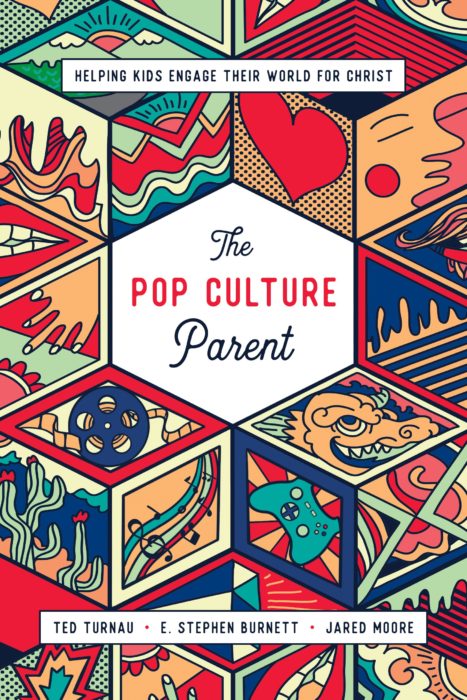Church Influencer, Before You Engage American Culture, Engage Thyself
Today I feel the need to expand on my X post (below):
After the election, some of you church influencer folks are moral-panicking, like a 1980s televangelist versus D&D.
You really should sit still a moment and listen to the culture that you purport to speak into.
But before you listen to them, you first ought to hear yourselves. pic.twitter.com/ThtNbxlNzo
— E. Stephen Burnett👨🚀✝️ (@EStephenBurnett) November 7, 2024
To some extent, Andrew T. Walker has already expanded on this in today’s WORLD Opinions article. Walker cuts to the chase:
If you are an evangelical thought leader and spent little to no time over the last four years speaking out against the secular progressivism of President Biden, no rank-and-file evangelical in the pew cares what you think anymore. …
Not only were the past eight years of criticism ineffective, but eight years later, there was a net increase in evangelical support for Donald Trump. This means evangelicals were not even listening to begin with.
Many (like Megan Basham) have explored how these “shepherds,” who engage in moral panic and laments over the election, are effectively “for sale.” This could make too little a case. Many church influencers often come across as “for sale” to bad engagement because they are in fact rather impoverished. Here is why.
1. They’re not big leaders with big platforms.
Maybe they once wanted to be, but reality is setting in. They may have some following as a church influencer. But they won’t be a Piper, Sproul, Begg, or Keller.
(If they’re reading this, that’s okay! One body, many members. May the Lord Jesus bless you in your work.)
2. Frankly, they’re not well-versed in basic politics.
They probably grew up in basic U.S. political popular culture, but never learned to discern this culture. E.g., many persist in assuming the U.S. presidential office is solely about showing some great moral example to the nation, with Winsome language that will help us Maintain Our Public Witness. (This is, of course, not the president’s first job. He swears an oath to defend the U.S. Constitution, not our favorite social norms.)
 3. They can’t see around personal experiences.
3. They can’t see around personal experiences.
I often speak about “Church Back Home syndrome.” That’s the habit of seeing all the world in light of your own bad experience with an evangelical church (or family, school, private institution, or nonprofit).
Some influencers have acute cases of this habit. These backstories often motivate their work and especially their rhetoric about “white American evangelicals.” For them, it’s all about the power struggle, because that’s all they seem to know. And if they can’t see past those ghostly walls of that haunting Church Back Home, they’re unable to judge the (often worse) realities beyond their experiences.
Some even talk as if Christians in American aren’t suffering real persecution, but if we were, then it might be good for “us.” That us is a tell. It means them—bad Christians who previously hurt the influencer.
That isn’t a righteous desire for purifying the Church. It’s a plain old vengeance quest. And that’s a sin.
4. They ignore basic reality about cultural clashes.
For instance, a few repeat pro-life canards circa 1987 without also seeing today’s reality of leftist actions to enforce censorship of free speech and religious practice, and impose “transgenderism” as federal law.
Sure, Trump can sound really bad—if you fail to see what his enemies do. Or feel ill-equipped to discern the new realities of the secular and sexual revolutions.
5. Many froze their sociopolitical rhetoric in 2016.
Since that year, Trump has actually been president, had many ups and downs, got beat, threw tantrums, then somehow pulled together a more cohesive campaign, survived two assassination attempts, and staged a remarkable comeback. In the last several months, he’s even spoken and acted more humbly, even “winsomely,” surrounded by a more winsome team.
To ignore this reality seems intellectually dishonest.
6. They fail to do their own cultural engagement.
This one goes out to my friends and allies in the whole field of Christian Cultural Engagement. I know that many of you came to love this Cultural Engagement partly because you grew up in environments that failed to teach this. That’s why you grew to love things like games, comics, film, shows, and music beyond the evangelical stuff. Some then write many articles and books and also record many podcast episodes about how faithful Christians can enjoy these things for God’s glory and to build bridges with neighbors.
Well, have you even read your own content lately?
Why shouldn’t a faithful Christian engage in the messy popular culture of culture clashes and politics, in the same way as, say, the prophet Daniel? Why can’t we enjoy this calling for God’s glory and to build bridges with our neighbors, identifying the idols but also finding the common grace? Yes, even in that wicked and dastardly pop culture around President Trump?
When I’ve challenged these folks before, I hear, Well, but that’s different! Never a persuasive reason why. They simply assume right-wing culture uniquely sinful, or else, as someone told me, “not real popular culture” (unlocking a variant of the No True Scotsman fallacy).
I’ve bitten my tongue, but the rebuttal is too easy: if Thoughtful Christians can write reviews of Game of Thrones episodes or violent Scorsese movies, finding any common grace in those cultural works, then they can certainly discern controversial political speeches without limiting themselves to ranting about the idols.
Church influencer, here’s a tough question: are you trying to do Cultural Engagement mainly as a way to help you leave behind your bad church backstory?
 Well, in that case, the Cultural Engagement is really about you and your pain, not about Christ or your neighbors’ needs. How can I tell? Because many of your actual neighbors are really, really enjoying (or despising!) the sociopolitical issues right now. Many of your real neighbors even voted for Trump. If you’re not in those conversations, listening to them as much as speaking at them, how are you being salt and light?
Well, in that case, the Cultural Engagement is really about you and your pain, not about Christ or your neighbors’ needs. How can I tell? Because many of your actual neighbors are really, really enjoying (or despising!) the sociopolitical issues right now. Many of your real neighbors even voted for Trump. If you’re not in those conversations, listening to them as much as speaking at them, how are you being salt and light?
Four years ago, my coauthors Ted Turnau and Dr. Jared Moore wrote The Pop Culture Parent.
In this book, we review five top questions parents can ask their kids (and themselves!) at many ages to build Christ-centered relationships with their children and train them in cultural engagement. On the way, we gently rebuked Christians who criticize popular culture, like Harry Potter or Star Wars, without knowing basic facts about those cultural works.
Ted, for instance, recalled a Christian evangelist gamely trying to do a “cultural engagement” outside a Comic-Con by holding up a Hulk-inspired sign warning “REPENT, OR DEVIL SMASH YOU IN HELL.”
That is not the best way to get to know the neighbors. It’s fake evangelism, not to mention unbiblical. If you cringed at reading this, then you should consider that this sign is just how those moral-panicked anti-Trump rants appear to your American neighbors. Are these folks not also part of the World that is Watching Us?
7. They are not creating culture of lasting value.
Finally, where’s all the breakthrough creative action in the Christian or conservative spaces? Who’s actually making the new films, shows, novels, games, comics?
It’s not thinkpiece writers or Ministry podcasters.
And it’s not the nonprofit professionals or periodical editors ruminating on their Prophetic Witness or else Lamenting the social divisions in the nation.
Instead, the most active Christians or conservatives are social-drama makers like the Kendrick brothers, or creator Dallas Jenkins with the Bibleverse, or Angel Studios, and even The Daily Wire platform that aims to “fight the left and build the future” (emphasis added).
It’s the faithful (yet obscure) Christian novelists I know who are crafting entire worlds, often in fantasy and science fiction, based on their biblical worldview.
This is partly why I’ve largely stepped away from the “engaging the culture” space. Instead I’m moving toward my own fiction creation, while exploring fantastical stories for God’s glory at Lorehaven.
But I can’t help but look back on my own backstory in my old spaces, and do my own Prophetic Lament.
Christian cultural engagement folks—the Church still needs you. It needs your warnings about excesses, your identification of idols, and any experience you’ve had with abuse or other sins in local churches. It needs your tragic backstories and desire for truth.
And the Church needs you to show better how to engage all popular culture, even the Trumpy stuff, even the podcasts, memes, and uncomfortable ideas.
If you can’t do that, then you will continue to wither as a person. You’ll become more insular, like an old-style fundamentalist who refuses to allow those “pagan” instruments onstage. And you’ll become more of a victim who refuses to heal from your tragic backstory.














It’s so easy to make the worst assumptions about political opponents. I try to keep myself aware of what I’m thinking, but even so…
Surveys have shown that most folks who vote “on the right” think their opponents are simply wrong or need more education. Whereas folks who vote “on the left” more likely suppose their opponents are actively evil.